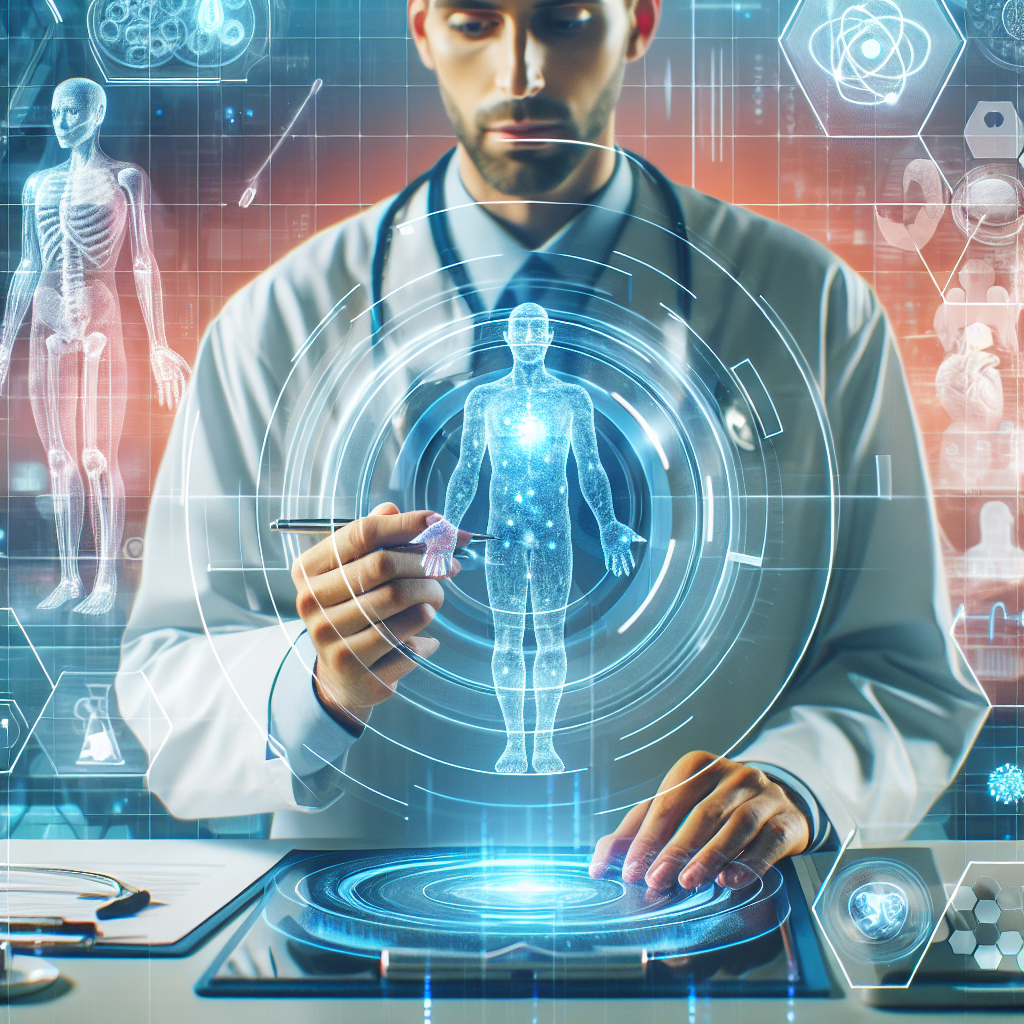Generative AI and Healthcare: Improving Diagnosis and Treatment
Generative artificial intelligence (AI) has the potential to revolutionize the healthcare industry by improving the accuracy of diagnosis and treatment. From generating medical images to predicting patient outcomes, generative AI offers a wide range of applications that can help healthcare professionals provide better care to their patients. In this article, we will explore how generative AI is being used in healthcare and its potential benefits.
What is Generative AI?
Generative AI is a type of artificial intelligence that is used to generate new data or information based on patterns found in existing data. Unlike traditional AI models that are trained to recognize patterns in data, generative AI can create new data that is similar to the data it was trained on. This ability to generate new data sets it apart from other AI models and makes it particularly useful in healthcare applications.
Generative AI can be used in a variety of ways in healthcare, including generating medical images, predicting patient outcomes, and personalizing treatment plans. By analyzing large data sets, generative AI can identify patterns and relationships that may not be immediately apparent to human observers. This can help healthcare professionals make more accurate diagnoses and develop more effective treatment plans.
How Generative AI is Improving Diagnosis and Treatment
Generative AI has the potential to significantly improve the accuracy of diagnosis and treatment in healthcare. By analyzing large data sets, generative AI can identify patterns and relationships that may not be immediately apparent to human observers. This can help healthcare professionals make more accurate diagnoses and develop more effective treatment plans.
One of the key applications of generative AI in healthcare is in generating medical images. Medical imaging is an essential tool for diagnosing and monitoring a wide range of conditions, from cancer to heart disease. However, interpreting medical images can be a time-consuming and error-prone process. Generative AI can help by automatically generating medical images based on a patient’s data, allowing healthcare professionals to quickly and accurately assess a patient’s condition.
Another application of generative AI in healthcare is in predicting patient outcomes. By analyzing large data sets of patient records, generative AI can identify patterns that are associated with positive or negative outcomes. This can help healthcare professionals predict how a patient is likely to respond to a particular treatment and adjust their care plan accordingly.
Generative AI can also be used to personalize treatment plans for individual patients. By analyzing a patient’s medical history, genetic data, and other relevant information, generative AI can help healthcare professionals develop personalized treatment plans that are tailored to the patient’s unique needs. This can lead to better outcomes and reduced side effects for patients.
Benefits of Generative AI in Healthcare
There are several benefits of using generative AI in healthcare, including:
– Improved accuracy of diagnosis: Generative AI can help healthcare professionals make more accurate diagnoses by identifying patterns and relationships in large data sets that may not be immediately apparent to human observers.
– Personalized treatment plans: Generative AI can help healthcare professionals develop personalized treatment plans for individual patients based on their unique needs and medical history.
– Predicting patient outcomes: Generative AI can help healthcare professionals predict how a patient is likely to respond to a particular treatment, allowing them to adjust their care plan accordingly.
– Faster and more efficient healthcare delivery: Generative AI can help healthcare professionals analyze large data sets quickly and accurately, allowing them to provide more efficient and timely care to their patients.
Frequently Asked Questions (FAQs)
Q: Is generative AI safe to use in healthcare?
A: Generative AI is a powerful tool that can help healthcare professionals improve the accuracy of diagnosis and treatment. However, like any technology, it is important to use generative AI responsibly and ethically. Healthcare professionals should ensure that the data used to train generative AI models is accurate and representative of the patient population, and that the models are regularly updated and validated.
Q: How is generative AI different from other types of AI?
A: Generative AI is unique in its ability to generate new data based on patterns found in existing data. This sets it apart from other types of AI, such as machine learning models that are trained to recognize patterns in data but cannot generate new data. Generative AI is particularly useful in healthcare applications where the ability to generate new data can help healthcare professionals make more accurate diagnoses and develop more effective treatment plans.
Q: What are some challenges of using generative AI in healthcare?
A: One of the main challenges of using generative AI in healthcare is ensuring the accuracy and reliability of the generated data. Healthcare professionals must carefully validate and test generative AI models to ensure that they are producing accurate and reliable results. Additionally, there are ethical considerations to take into account when using generative AI in healthcare, such as patient privacy and data security.
In conclusion, generative AI has the potential to revolutionize the healthcare industry by improving the accuracy of diagnosis and treatment. By analyzing large data sets, generative AI can help healthcare professionals identify patterns and relationships that may not be immediately apparent to human observers. This can lead to more accurate diagnoses, personalized treatment plans, and better patient outcomes. While there are challenges to using generative AI in healthcare, the potential benefits are significant and can help healthcare professionals provide better care to their patients.

